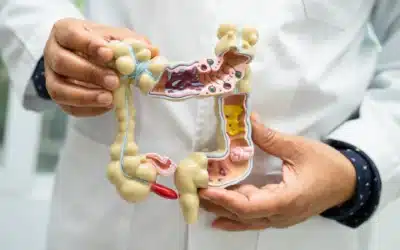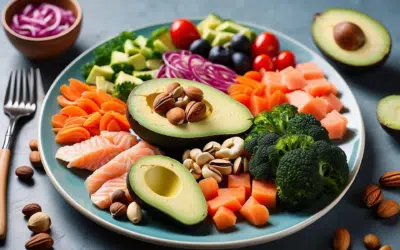Science proved that the ketogenic diet can be beneficial to relieve depressive symptoms. And that alone shows how important nutrition is for mental health and overall wellbeing. However, sometimes keto could go the wrong way and provoke a low level of depression in certain people.
What are the causes behind that, and how do we address them? Read along and find out.
What is depression?
Let’s start with a quick recap! If you feel down with no desire to do stuff, especially for a prolonged period, you might be facing depression.
It’s a complex state, which might be provoked by numerous factors such as stress, poor nutrition and deficiencies, alcohol abuse, toxins, hormone imbalances, thyroid problems, genetic predisposition, lack of sunlight, hypoglycemia, and so on.
How may keto make you feel depressed?
Even though keto positively affects brain chemistry, it might still harm your mood based on the following reasons:

Poor nutrition
Well, if you are not following the standard keto plan and you are relying on dirty keto instead, it’s possible that junk food can play you a nasty trick. Because it does make a difference if you feed on homemade fish with seasonal veggies or a store-bought bacon cheeseburger, doesn’t it?!
Your body is a perfect machine that requires nutrient-dense food to function properly. Products low in vitamins, minerals, and enzymes are obstructing its work. One good reason is that high-quality protein and healthy fats are necessary to make certain neurotransmitters (i.e., serotonin and dopamine), which are great mood regulators. So, if your cells are receiving the wrong nutrients, they will be sending false signals to your brain, and you might end up depressed and anxious.
Also, low-quality meals can lead to dysbiosis and the prevalence of harmful bacteria in your gut. Believe it or not, communication between your intestines and the brain is ongoing. If one of them is unhappy, the other one will follow sooner or later.
Electrolyte imbalance
Flushing out an extra amount of water during the adaptation period when your body switches from glucose to fat fuel might result in low levels of important electrolytes like magnesium, potassium, and sodium. And that process has been connected to depression. To avoid it, make sure you are getting enough salt, which is naturally high in minerals, like Himalayan pink salt or sea salt. Also, consider supplementing with potassium and magnesium, at least during the adaptation phase.
Emotions

You might be doing everything perfectly well on a physical level, but still feel uneasy. Review your emotions and be honest about it – do you feel socially isolated when you go out to have dinner with friends? Do you feel left out when they order anything on the menu and share, but you don’t want to be part of that because you are on a diet?
Well, there’s no need to feel blue for somebody else’s actions and reactions. Each human being is entitled to his own decisions and mistakes. Focus on your health and your food choices – that’s what you really need to be concerned about. The rest? Just let it go and enjoy your time out!
What else can you do to feel better on keto?
Most importantly, focus on anti-inflammatory foods like you have been doing already. Take one step ahead and choose food quality over food quantity. Clean and preferably locally bought proteins, healthy fats, and plenty of vegetables will definitely help you heal your gut and boost your mood.
You can also try carb cycling – one day a week, enjoy more carbs than usual, and the other six days stick to standard keto. If it works for you, then maybe you transitioned to keto from your previous diet way too quickly, and your body didn’t have the technical time to adjust to low-carb intake properly. Plus, carbs, like resistant starch, support your good microflora, which will also benefit your brain.
Last but not least, consult with your health coach or nutritionist to help you choose the most adequate mood-boosting supplements for your personal needs to support you along the way. Possible options would be zinc, glutathione, l-tyrosine, 5-HTP or most adaptogenic herbs.
The Keto diet offers a scientifically proven method to shed excess body fat while enjoying delicious, satisfying meals. Thanks to its focus on high-fat, low-carb eating, the diet increases energy levels, improves mental clarity, and a more stable appetite.
Final thoughts
Depressive symptoms might appear on keto. Don’t disregard them. Instead, handle them on time to avoid any negative consequences like chronic inflammation, oxidative stress, imbalanced energy levels, impaired brain function, and so on.
Adjust the macronutrients in your plate. Consider obtaining the best products you can afford because food is either your poison or your remedy. Correct your electrolytes intake and consider supplementing with mood-boosting micronutrients.
And never, ever turn your back on your emotions. They speak volumes! It would be best to accept that you are on a new lifestyle journey, pat yourself on the back, walk tall, and go enjoy that night out with your buddies!



















